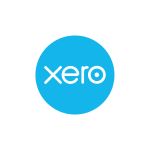
Source: Adobe Stock.
The end of the financial year is just a couple weeks away, but there’s still time to boost your cash flow and maximise your tax refund — or at least minimise your bill.
This year has been a tough one for business owners, says Julian Cheong, chartered accountant and manager at Banks Group. There have been rate hikes and supply chain issues, the price of commodities has gone up, and you’ve potentially handed out a few wage increases too.
No one knows what the next 12 months will bring, and while there’s always cause for optimism, it never hurts to have some extra cash on hand. If it doesn’t go towards managing unexpected expenses or seeing you through hard times, it can be re-invested in the business.
Here are Julian’s top tips for getting max cash back at tax time.
1. Get the right advice.
If you don’t already have an accountant or bookkeeper, now is the time to find one — and Xero’s advisor directory is a great place to start. EOFY is a busy time, but you’ll always find one that’s happy to talk through what you can and can’t claim.
“It’s always good to have an accountant to do some last-minute, year-end tax planning,” Julian says. “Tax laws are always changing, so there are always new things that are happening that people need to be aware of.”
2. Make those super contributions.
One really important piece of advice Julian had was to pay any super contributions you plan to make, whether for yourself or your employees, before 30 June.
“Super’s one of those ones I think most businesses forget, but they’re going to pay it anyway,” he says. “It’s due on July 28, so if you can pay it before June 30, you can get the tax deduction this side of the financial year.”
Xero’s Auto Super function can make your life a lot easier here, he adds, since all you need to do is click a few buttons and the payment will come out of your bank account.
It’s quicker and safer than “how other clients do it, where they manually upload the details into a clearing house themselves, which just takes more time and is more prone to errors,” he says.
3. Get that new piece of equipment.
With uncertain times ahead, it’s best to spend money wisely and save cash where you can. On the other hand, sometimes you need a new piece of equipment to improve your productivity and profitability over the long term.
“Temporary full expensing is still available, and there’s no limit on it for most small business entities,” Julian says. “So you could buy a $300,000 piece of equipment — of course, making sure it meets all the rules — but essentially you could write it all off in full. Whereas, historically, it would have to be depreciated, so you would only get a small benefit out of that.”
Just make sure whatever you buy is paid for and installed or delivered before 30 June.
4. Chase those invoices.
It’s a good idea to chase up any outstanding invoices before June 30, especially if you’re operating as a company or trust. Because did you know you’re paying tax on them either way?
“One thing that businesses don’t understand is that most of them are paying tax on the amount that they’ve invoiced for, irrespective of whether or not they’ve collected it,” Julian says. “For sole traders it’s on a cash basis, but most structured entities through companies or trusts usually pay tax on what they’ve invoiced for.”
Xero can come in handy here too, he says, because you can set it up to send out nice, friendly automated invoice reminders whenever you want.
Some final tips
Julian had a few other expert tricks up his sleeve, including taking advantage of what’s called loss carry back, where you offset losses in 2022 against tax paid in 2020 or 2021. Meanwhile, you might want to bring forward any expenses that are due early in the new financial year, such as insurance premiums.
Review your year-to-date profits and check whether your PAYG installments are appropriate based on your income. If not, your accountant can adjust them, or you can call the ATO for guidance and do it yourself.
It’s always best to outsource these things to an experienced bookkeeper or accountant though, if and where you can. Not only are their services deductible, it leaves you with more time and headspace to devote to your core skill set — and isn’t that what got you into business in the first place?
Read now: Grow as a sole trader in 2022 with these three tips



COMMENTS
Reader comments have been turned off on this post.